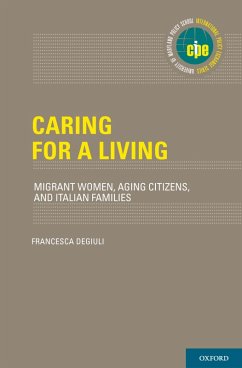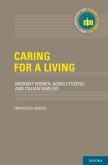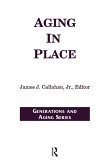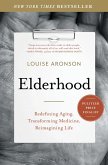Today's world is aging at a great speed, and although increased longevity represents one of the greatest achievements of the last century, the extension of life expectancy does not necessarily correspond to an extension of healthy lives. Aging populations, particularly those with a high percentage of the oldest old, are often burdened with chronic conditions that require extended long-term care. Deciding who provides said care, and in what forms, are key problems that will soon affect a growing number of post-industrial high- and mid-income countries.
Caring for a Living contributes to this debate by exploring the organization of long-term care in Italy, a country already in the midst of an eldercare crisis. There, the answer to this problem has taken the shape of home eldercare assistance, an arrangement whereby long-term care services are bought in the market in the form of private and individualized assistance by families sometimes with economic support provided by the State. The providers of these services, commonly known as "badanti" (minders), are, for the most part, im/migrant women coming from different areas of the world.
Caring for a Living analyzes the emergence and development of this arrangement and the role that the state, Italian families, and workers themselves play in shaping and in defining it. The author provides timely insights on: the nature of long-term care and its requirements; the specific needs of families facing this issue; the changing role of the neoliberal State; and the ways in which global political and economic processes influence and shape an apparently individually based solution to long-term care. This book is ideal for graduate courses in sociology and anthropology, specifically in courses related to gender and migration, work and women, social inequality, and immigration studies.
Dieser Download kann aus rechtlichen Gründen nur mit Rechnungsadresse in A, B, BG, CY, CZ, D, DK, EW, E, FIN, F, GR, HR, H, IRL, I, LT, L, LR, M, NL, PL, P, R, S, SLO, SK ausgeliefert werden.
Hinweis: Dieser Artikel kann nur an eine deutsche Lieferadresse ausgeliefert werden.









